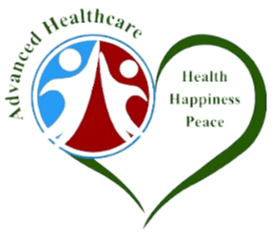
Human Growth Hormone

Posted on August 9th, 2023
Human Growth Hormone is one of many endocrine hormones, like estrogen, progesterone, testosterone, melatonin and DHEA, which decline with age.
The decline of growth hormone with age, sometimes referred to as somatopause, is directly associated with many of the symptoms of again, including wrinkles, grey hair, decreased energy and sexual function, increased body fat and cardiovascular disease, osteoporosis, and more. Many of these symptoms have been associated with younger adults who have growth hormone deficiency.
Proper diet, exercise, and secretagogues, when used correctly, allow the pituitary to significantly increase levels of growth hormone. The pituitary gland, which manufactures growth hormone, is located at the base of the brain. GH production is controlled by its manufacturing cells called “somatotrophs”, while its release is controlled by chemical messages from the hypothalamus. Studies have clarified human GH releasing patterns, by measuring GH every 5 minutes for an entire day. It is released in four main bursts, or “pulses”, in young men, while young women exhibit more frequent bursts that collectively represent 50% more daily secretion of GH. Most of the day’s GH release occurs at night during slow wave sleep, and the remainder is released in smaller bursts the day, which are often determined by exercise and dietary patterns. GH may be released about 12 times during a 24-hours period, but after the age of 50, the number and intensity of pulses is decreased. In adults with GH deficiency, the skin is thin and collagen deficient.
Wrinkles known as “crow’s feet” may be caused, in part, by GH deficiency. Also causes dehydration and decreased sweating. People with GH deficiency can’t tolerate cold and have difficulty cooling off during exercise. Metabolism of glucose, protein, and fats is abnormal GH deficient adults. Sugar metabolism and accompanying insulin resistance is a problem particularly in obese adults with GH deficiency. GH therapy has a known insulin regulating effect and often results in normalization of blood glucose. GH deficiency causes increased thickening and hardening of arteries, and increased plaque formation. Including this affects the lack of energy, optimism and “zest for life”. People report difficulty with memory, concentration, and motivation. They are frequently “in a bad mood”, and depressed. All of the symptoms of GH deficiency that we have described are associated with low Growth Hormone levels.
Anabolic Tone:
Reduced lean body mass and/or skeletal muscle mass
Reduced skeletal muscle strength
Reduced exercise performance
Increased total body fat
Increased abdominal and visceral fat
Lipid Effects:
Elevated LDL cholesterol
Decreased HDL cholesterol
Elevated apolipoprotein-B
Bone Effects:
Osteopenia (lack of bone)
Metabolic Effects:
Insulin resistance (in obese people)
Hypoglycemia
Possible abnormal resting metabolic rate
Reduced T4 to T3 conversion
Protein Synthesis:
Thin skin
Lack of collagen
Decreased size of organs
Decreased nail and hair growth
Dehydration:
Reduced glomerular filtration and renal plasma flow
Reduced sweating - inability to thermoregulate
Reduced cardiac output (potentially)
Increased vascular resistance
Mental Health:
Reduced energy
Emotional instability
Poor memory and concentration
Depression
Lack of social interaction
Lack of purpose
Reduced Sex Drive
Get in Touch
If you have any questions or comments, please fill out your information in the Contact form below.
We look forward to helping you on your journey to wellness and optimal health.

